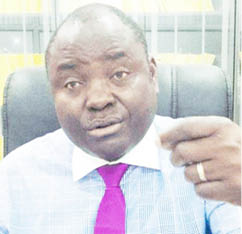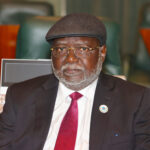Despite recent reforms in the judiciary focusing on procedural rules and factors of justice delivery, demands for reworking of the administration of justice have continued.
Some legal experts’ recent call for the office of the CJN to be unbundled stirred fresh interest on the subject as more lawyers added their voices to the call, which many believe should be part of judiciary reforms.
Reforms in the judiciary had focused mainly on welfare of judges, use of technology, and fast-track administration of justice, among others without much on the powers of the Chief Justice of Nigeria who wields enormous powers and controls all institutions of the judiciary.
Under Section 241(4) of the Nigerian Constitution, the CJN is usually recommended by the president to the Senate for appointment.
NCSCN Commends FG, Customs Over Cancellation Of 25% Penalty On Imported Vehicles
IFAD, FG designs new value chain project for North
Thereafter, he assumed the headship of the Supreme Court, the third arm of government of Nigeria in both judicial and administrative capacities.
Also, under the National Judicial Service Council (NJC) procedural rules, the Chief Justice of Nigeria is both the chairman of the NJC and the Federal Judicial Service Commission (FJSC) and other judicial institutions.
At a recent workshop titled, “Impact of Judicial Accountability on Public Trust in the Legal System” organised by the TAP Initiative in conjunction with the Open Society Foundation, senior lawyers and researchers released a communique calling for the unbundling of the powers of the CJN on March 4.
The communique signed by Jibrin Okutepa, Adamson Adeboro, both Senior Advocates of Nigeria, and Mbasekei Martin Obono, Esq and Victoria Benson, said the unbundling should focus on the CJN’s chairmanship of the National Judicial Council, Federal Judicial Service Commission, National Judicial Institute and Legal Practitioners Privileges Committee.
The experts submitted that the move would improve judicial accountability to win public trust again.
Other lawyers expressed mixed reactions to the raging issue.
A former Attorney General and Commissioner for Justice in Ekiti State, Dayo Akinlaja (SAN), said he does not subscribe to the view that the office of the CJN should be “unbundled”.
He said, “It is my belief that the concentration of the various existing powers in the office of the CJN allows for proper control, accountability and seamless management of the system. Thus, it is an asset rather than a liability.
“Any CJN truly worthy of being so called would realise the imperative need to constantly exhibit integrity and probity in the discharge of the functions of that noble office.
“Once that is done, there can be no problem with the high concentration of judicial cum administrative duties in the hands of the CJN.
“If the functions being now performed by the CJN are to be split among a number of individuals, chances are that there will be conflicts and rivalries that will not augur well for the system in the long run.
“In a way too, it may be easier to monitor and censure one person than a number of persons.
“The CJN should be allowed to continue to perform the myriad of functions assigned to his office.
“However, there may be a need to subject the occupier of the CJN at any point in time to a measure of checks and balances; without stripping the office of any of the extant constitutional duties.”
However, an Abuja-based counsel, Hameed Ajibola Jimoh, expressed support for the unbundling, which he suggested would relieve the CJN of the enormous responsibilities imposed on his office leading to some levels of underperformance and inefficiency.
“Facts would confirm that considering the age of the holder of such office and coupled with his lordship’s judicial roles as a Justice of the Supreme Court of Nigeria, the old age would definitely tell on the strength required for such performance of such enormous duties.
“Hence, it is better for Nigeria, the judiciary, legal profession and the interest of justice to have some of those functions diverted elsewhere rather than to combine such functions and roles in the CJN’s office,” he said.
Similarly, an Abuja-based lawyer, E.M.D Umukoro, said the CJN’s headship of National Judicial Council, Federal Judicial Service Commission, National Judicial Institute and Legal Practitioners Privileges Committee is distracting him from his primary responsibility of overseeing justice administering at the highest court of the land.
“It is a serious issue because it not only distracts; it imbues him with overwhelming powers because he can almost do and undo; he can decide, he can influence, he can appoint, he can fire and all kinds of things that happen within the judiciary,” he said.
He said the situation also affects lawyers and judges who may not engage the system properly because of concerns that the CJN could make decisions that affect them.
“So, the long and short of the matter is that there is an enormous power in the office of the CJN and so those calling for its unbundling have a point, and it is something that those involved in judicial reforms would have to look into,” he added.

 Join Daily Trust WhatsApp Community For Quick Access To News and Happenings Around You.
Join Daily Trust WhatsApp Community For Quick Access To News and Happenings Around You.
